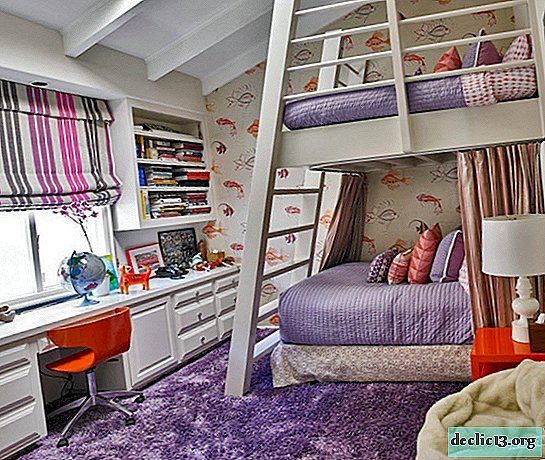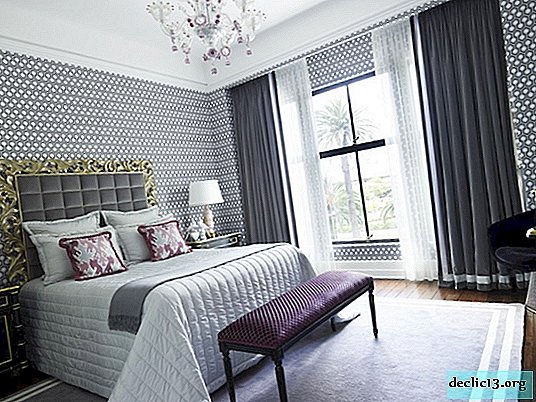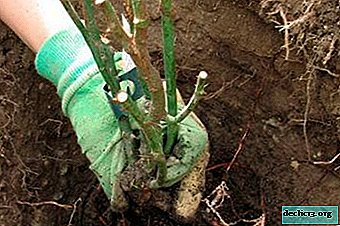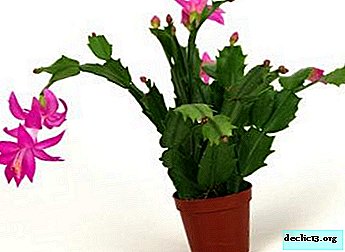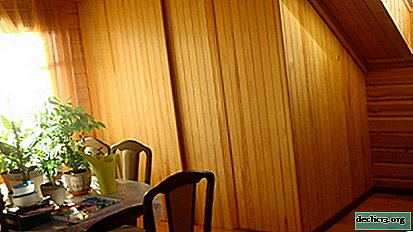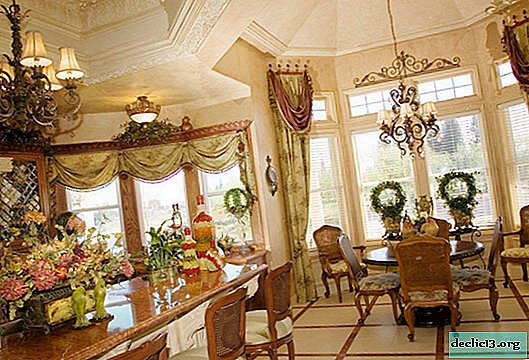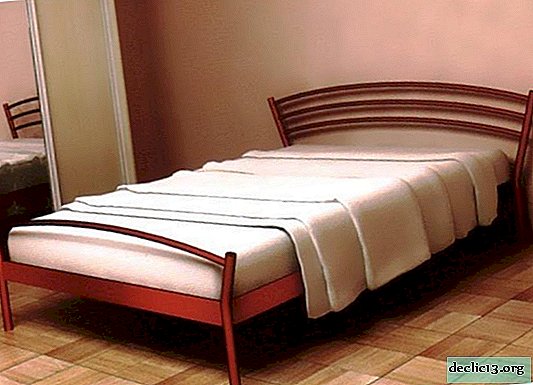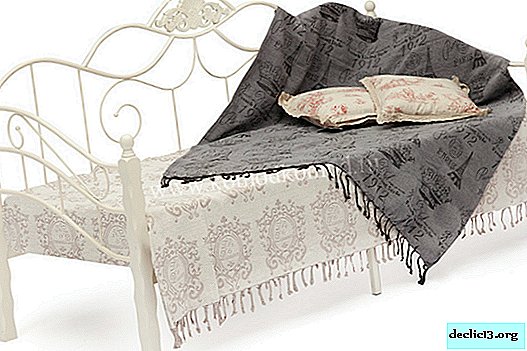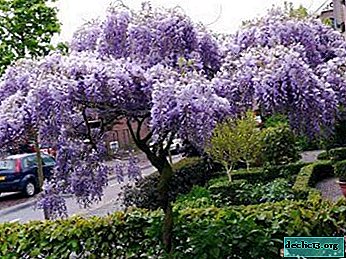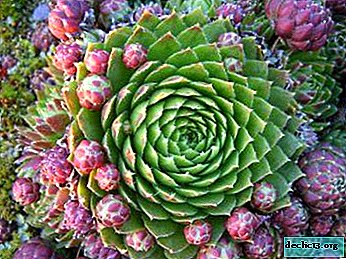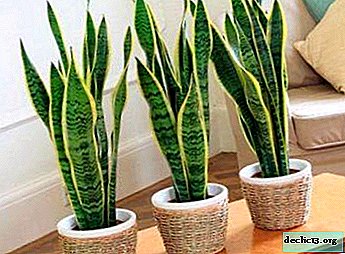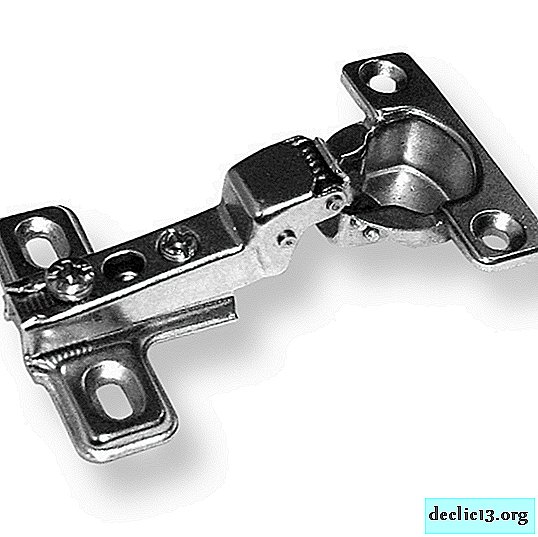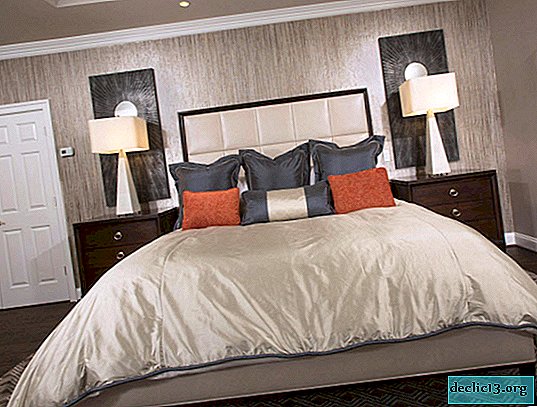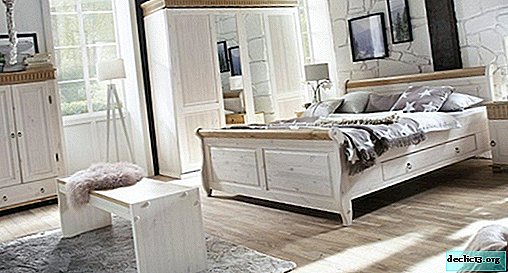Staircase to the second floor - modern, safe and attractive design
If your private house or multi-level apartment contains more than one floor, then the question of building a staircase will arise at the very beginning of the repair. When choosing a design and material for the manufacture of stairs, it is important to be guided not only by your stylistic preferences, but also not to forget about safety and ergonomics. We will single out several criteria by which the design of the staircase and the materials for its manufacture are selected:
- of particular importance is the location of the stairs - the front door in the center of the hall, living room or secondary at the back of the house;
- the location of the future structure relative to the room, its size and the number of square meters allocated for the direct construction of the stairs;
- the level of safety of the structure will depend on whether small children and elderly people live permanently in the house - some modern staircase models may be unsafe;
- the thickness of the walls to which the structural elements will be attached;
- interior of the premises in which the structure will be located.
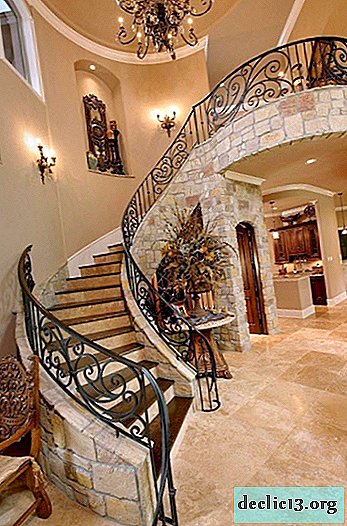

A staircase in a private home or apartment is not only a structure that helps to get to the upper level, but also an important element of the interior, affecting its appearance, the location of furniture and decor. Therefore, it is necessary to approach the selection of a staircase model in all seriousness, having weighed all the advantages and disadvantages of each model and its manufacturing material.


Ladder options for private homes
All stairs can be conditionally divided into marching and spiral (spiral). Most often in modern dwellings, it is the marching structures that are used, which in turn are divided into the following subspecies:
- structures on kosoura - consist of beams, which are individually attached to the base (made of wood, metal and concrete);
- ladders on bowstrings - steps are attached to the inside of the beam. The structures have a complex structure and can be made of various materials;
- structures on bolts - all structural elements are connected by bolts (there are metal and wooden).


Let us consider in more detail each of the options for marching stairs.
Kosoura stairs
One of the most common options for building staircases in private homes are structures on the kosoura. Among the advantages of such models are the following:
- high level of security;
- concise appearance that easily fits into almost any style of interior;
- many variations in size and decor;
- can be made both with risers and without them.


The method of attaching the steps in such structures will depend on the number of beams attached to the base - two or one. Kosoura, in turn, can be straight, broken or screw.

This type of staircase is possible in various variations of execution; you can create a truly individual design of the structure based on the traditional model.

The use of glass or plastic transparent railing in the form of screens allows you to create a lighter image of the stairs for a modern interior. The only drawback is the lack of a railing in the idea we are used to, the inability to rely on fasteners. But with such short marches, this drawback is insignificant, unless there are elderly people with mobility problems in the house.

String Designs
Stairs on bowstrings have a sophisticated appearance that will most harmoniously look in the classical style of the interior and derivatives of this stylistic direction. The steps in such structures are attached to the support beam from the inside. The complexity of the design and excellent appearance do not prevent buildings from having an incredibly high level of convenience, safety and comfort of movement.


Such structures can be made of metal and wood, act as combinations with other materials.


Structures on the bolets
As a rule, staircases on pedestals are made of metal (this is due to the peculiarities of fixing the elements of the structure), but they can also have a combined composition of manufacturing materials. Due to the fact that all the elements are connected using pins and bolts, the structures have a fairly simple and concise appearance, but are incredibly strong and durable. Facilities can support high weights. The fact is that the support beam is mounted to the ceiling, wall or floor with metal rods.

The main advantage of this design is the ability to disassemble for repair or reconstruction. Steps in such stairs can be open or closed, have various shapes and sizes.

Due to the fact that such stairs have no foundation, the space under them can be used for the benefit of households, providing a place to relax, a reading corner with a small library.


Spiral staircase - exclusive interior
Spiral staircases are especially popular in private houses, where a little usable space is intended for the arrangement of the structure. Spiral stairs consist of degrees, handrails and a rack (base). This is surprising, but spiral staircases can be not only round, but also octagonal, square. In houses where there are small children or elderly people with mobility problems, it may not be worth using such original models, but in other cases, spiral staircases can decorate any interior, not to mention the practical side of the issue.


Most often, such designs have a metal frame, but there are also options made entirely of wood. Combined structures look very impressive, not inferior to metal structures in strength and durability.



Materials for the manufacture of stairs
Currently, various materials are used for the manufacture of stairs, we highlight the most popular of them:
- metal;
- wood;
- concrete;
- glass;
- a rock;
- combinations of materials.


The most popular, as many years ago, are metal and wooden stairs, due to environmental friendliness, strength, durability and relatively low cost of structures. But depending on the style of the interior of the room in which the staircase is installed, various combinations of these materials with glass, natural or artificial stone and even plastic are used.


For many years, wood, which has established itself as a strong, durable, wear-resistant and environmentally friendly material, continues to be one of the most popular options for building materials for the manufacture of stairs. Such stairs can be of three types:
- forest


Sometimes there are structures that combine two options for attaching degrees in the same structure. In some rooms, the design features of the space require it, in others it’s just a design method of bringing originality to the interior.

Wooden stairs with metal railings, decorated with wrought iron decor, look traditional, impressive and safe. Such structures will organically fit into many interior styles.



The combination of metal and wood provides many variations for the design of a durable and reliable staircase that organically fits into the modern interior style, loft or country style.

The stone staircase is durable and strong, but requires an impressive foundation due to the large weight of the main structure. Most often, natural stone is used only for the manufacture of steps and risers, but even then the weight of the structure will be impressive. Artificial analogues have fewer requirements, but the strength and durability of such materials are significantly inferior to natural raw materials. But the appearance is difficult to distinguish from natural material, and artificial stone is much cheaper than natural.


Stone stairs with wrought iron railings look luxurious. This is surprising, but the classic image of the staircase will be relevant not only in traditional interior styles, modern style favorably accepts the integration of such structures.

The staircase, the steps of which are made of raw stone, looks impressive, durable and safe. The rusticity of such a structure is added by the original railing made of flexible branches, which at first glance did not go through any processing.

Concrete stairs are one of the most affordable options. They are strong enough, safe, but unfortunately not as durable as their counterparts of metal, stone or wood.

Stairs that use glass to make steps look incredibly easy, even airy. For such structures, tempered glass is used in a special way, the strength characteristics of which are increased. In combination with the chromed surfaces of the frame, a staircase with glass steps will effectively complement the modern interior style, high-tech, pop art or loft.

Stairs with original design
Some models of stairs are a flight of fantasy designer. Such structures are able to raise the bar of uniqueness of your interior to sky-high heights, but in the pursuit of unusual design ideas it is important not to forget about the safety and ease of use of the structure.

You can give uniqueness even to the most traditional staircase, creating an original railing or space under the stairs. For example, facing the risers with ceramic tiles with bright ornaments allows you to bring into the interior of the room not only uniqueness, but also a positive attitude, a festive appearance.



A staircase with a curved base, which is not a spiral, but at the same time has smooth shapes, looks more than impressive. The steps are attached to the center of the base, having a curved shape. Of course, with such a design of the stairs, it will be difficult to do without the railing. Such a construction does not take up much space and does not require a massive base - a support.

A staircase with a single turn of the march is most often used in multi-level apartments to provide access to the upper level, sometimes similar structures can also be found in private houses. If in your home there are no small children and elderly people, then you can restrict yourself to a design without a railing.

In rooms decorated in country style, you can often find rustic elements in the design of stairs. As a rule, rusticity affects the elements of the railing, sometimes the supports.




Staircase lighting - an element of security and decor
Highlighting steps or the space near the stairs can become not only an element of the security of your home, but also give originality to the interior, provide you with the opportunity to create different versions of the atmosphere depending on the use of a particular type of lighting.


The lighting of the steps looks spectacular and allows you to safely move between floors of a home in the dark.

Space under the stairs - practical and aesthetic use
Storage systems do not exist much. This thesis is familiar to all homeowners. That is why the most popular use of the space under the stairs is the arrangement of various types of cabinets, shelves and even entire racks.

By building a bookcase under the stairs and placing a comfortable armchair and floor lamp nearby, you will provide household members with the opportunity to read a book in privacy and relax without using the usable room space, which is often simply not enough for such functional areas.

Sometimes under the stairs it is possible to mark out a workplace or even a full-fledged study with a desk, armchair and storage systems for books and office.

Some homeowners prefer to equip the space under the stairs for a wine cabinet. In addition to the functional background, such storage systems look impressive and modern, becoming the highlight of the interior.

Sometimes you can find the use of the space under the stairs as storage systems for stairs, on both sides bounded by walls. But with such a construction of drawers, it is important to remember that it is not necessary to load the containers strongly, the safety of movement on the stairs will partly depend on this.

In some houses (depending on the architectural features of the premises), it turns out to be rational to use not only the space under the stairs, but also the territory of the stairwells between the marches. Soft seating by the window will help organize a reading or conversation area.


